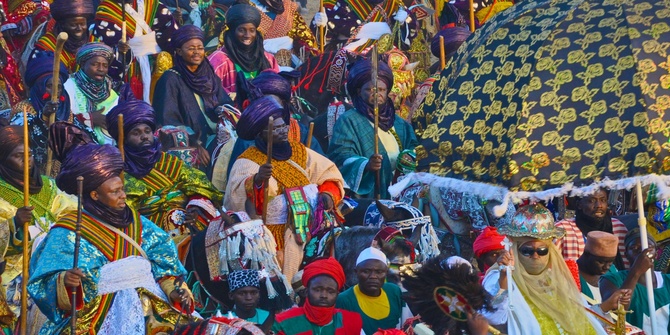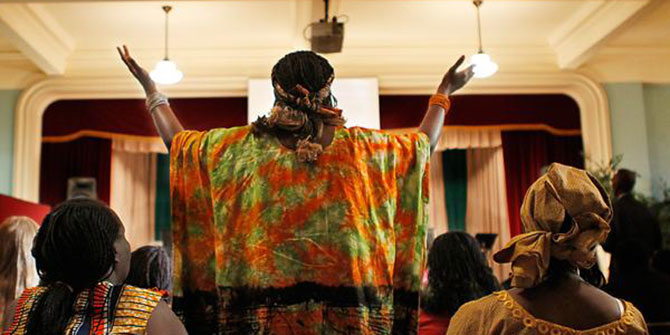As with football, Africa risks losing its best and brightest to more advanced and monied nations, says Ronak Gopaldas.
Football and politics have always enjoyed a fascinating relationship. During this year’s World Cup the political subtext was especially elevated, given the geo-political significance of the event being hosted in Russia. But beyond the obvious diplomatic undercurrent, the tournament brought a number of complex political issues to the fore. Polarising debates around talent, migration, identity and patriotism surfaced as a result of specific incidents that occurred during the course of the tournament. These incidents, although microcosmic in nature, were magnified on a global stage and reflected contemporary political realities.
Indeed, two specific episodes stand out. The first occurred in the aftermath of Germany’s acrimonious exit. The retirement of Turkish-born German star Mezut Ozil in controversial circumstances appeared to be a result of vicious scapegoating from German media, which reverberated across sporting and political spheres. “I am German when we win, an immigrant when we lose,” Ozil said. His parting message touched a raw nerve in a context of growing right-wing nationalism, heightened protectionism, and a backlash against immigrants in the West.

Somewhat paradoxically, France’s victory showed the other side of this same coin. The country’s second World Cup win was hailed as a glorious victory for multiculturalism, open borders and integration. Following les Bleus’ triumph, South African comedian Trevor Noah congratulated Africa on its first World Cup victory – a tongue-in-cheek reference to the demographic composition of the French team, over 70 per cent of who are of African and Muslim descent. The quip drew a strong rebuke from French authorities, who argued it was disrespectful to the players’ French identity and undermined the players in question.
Taken together, these two episodes brought to light many complex and important debates about identity, colonialism and migration. In so doing, they highlighted a number of societal parallels around the pressing challenges the African continent faces if it is to ever be globally competitive – not just in sport but also in terms of global affairs. In particular, it raised three questions that merit greater scrutiny, namely; why France’s victory was celebrated by Africa; the question of African identity; and how can Africa retain its best and brightest talent?
First, it is important to ask: why exactly do Africans feel such an affinity with the French team? There are a number of reasons. For starters, the enthusiasm needs to be seen in the context of a poor showing by the continent’s five teams, none of which managed to progress beyond the group stage. Next, sporting success offers hope and a reprieve from the harsh realities of daily life for many Africans. Seeing people who look, act and speak like them, not only competing, but excelling on a global stage provided a gratifying sense of affirmation and pride, along with the belief that nothing is impossible.
From this perspective, France’s showing was a picture of “black excellence”. This notion has assumed even more significance in an era of deep identity politics and Islamophobia. Indeed, with Africa so often marginalised or dismissed as a basket case in global affairs, the continent’s people embraced France’s victory so profoundly because it represented the everyday struggle and adversity that many of the continent’s citizens need to overcome to make it in a global setting.
On top of that, there was another sub-text – France’s colonial history. As Karen Attiah, global opinions editor of the Washington Post observed: “There is a certain glee that comes with knowing that racists, nativists and anti-immigrant politicians in France have to contend with the fact that the World Cup hopes of les Bleus rest on the shoulders of black African men.” And as commentator Malia Bouattia remarked in an opinion piece for The New Arab: “Given the West’s attempts to erase indigenous African culture and knowledge, the whitewashing of history in order to maintain superiority, and the wholesale theft of resources from the continent, claiming the win as African is a personal – if symbolic – act of resistance. The players succeeded in the World Cup against a backdrop of racism, fascism and xenophobia from the very country they were representing.”
Linked to this was the concept of a “good immigrant”. This point was illustrated not only by France’s footballers, but also by the daring of the Parisian “Spiderman”, Mamoudou Gassama. An undocumented Malian immigrant, Gassama rescued a child who was hanging from a fourth-storey balcony of a Parisian block of flats; he was immediately conferred with French citizenship for the heroic act. Yet for many this was a prime example of the double standards that have characterised France’s treatment of immigrants – who face the burden of having to be “exceptional” to prove their worth in western countries, while sanitising their Africanness to assimilate into society. It was in keeping with this that Trevor Noah rejected the narrow either/or definition of “Frenchness”, and posed the question “why can’t they be both?”. He was pointing out that to be French immigrants have to erase everything that is African in them.
French paternalism is still deeply ingrained across Africa. The French treasury effectively controls monetary policy in most of its former colonies, while French multinationals and banks dominate their natural resource sectors. The triumph of a predominantly black and Muslim team – 17 of the 23 players in the squad were immigrants or the children of immigrants – was loaded with historical significance. It offered a psychological opportunity break from colonial power dynamics. In so doing, it stoked a polarising debate around the questions of what it means to be “French” and “African”, which extended beyond the confines of a passport.
Third, linked to the issue of migrations is the dilemma of how Africa can keep its talents and provide them with the necessary opportunities for them to excel. The case of Kylian Mbappé, the tournament’s breakthrough superstar, born to a Cameroonian father and an Algerian mother, is an example of how Africa loses its best and brightest talent to other nations. In July, a Nigerian news outlet, dailyfamily.ng, reported that Mbappé’s father had tweeted that he wanted his son to represent his native Cameroon – but switched to France when he was asked to pay a “facilitation fee” by the Cameroonian football authority to play for the national team; the French, meanwhile, “didn’t charge me anything”.
The story is symptomatic of the institutionalised corruption, lack of adequate infrastructure, small financial incentives and poor coaching that plague many footballing federations in Africa and forces talent to seek better opportunities elsewhere. This sporting equivalent of the “brain drain” is argued as one reason why African football simply does not compete on an international level, despite the continent’s abundance of talent.
This combination of push and pull factors – amplified by significant gaps in resources, poor management, and a lack of opportunities, along with unanticipated difficulties – mirrors similar issues with regard to Africa’s economic management and development challenges. For similar reasons, the continent is failing to attract investment and retain economic and management talent. Currently, with wealthy northern clubs adopting match data-tracking and performance-tracking technology, this problem is likely to get worse.
The football metaphor paints a worrying picture of the challenges ahead for the continent. Just as is the case with football, Africa risks losing its best and brightest to more advanced, sophisticated and monied nations. Most countries on the continent are ill-prepared for a changing world that is modernising quickly through the fourth industrial revolution.
Unless something changes drastically, the continent will continue to be a global bystander. There are no quick fixes. Arresting this decline will require political will, long-term planning and significant investment. To create and retain our Kylian Mbappés in other sectors will require remedying the conditions that push our best talents to seek alternative paths to success. Today, Africa’s talents, like its natural resources, leave as raw products to become finished articles elsewhere – to their benefit, of course, and also to the advantage of their host countries, but seldom to Africa’s.
This article was first published on Good Governance Africa.
Ronak Gopaldas (@RonakGopaldas) is a director at Signal Risk, an exclusively African risk advisory firm. He was previously the head of country risk at Rand Merchant Bank (RMB) for a number of years, where he managed a team who provided the firm with in-depth analysis of economic, political, security and operational dynamics across sub-Saharan Africa. He holds a BCom degree in philosophy, politics and economics (PPE) and a BCom (Hons) from the University of Cape Town (UCT). He also has an MSc in finance (economic policy) through the School of Oriental and African Studies (SOAS) in London.
The views expressed in this post are those of the author and in no way reflect those of the Africa at LSE blog, the Firoz Lalji Centre for Africa or the London School of Economics and Political Science.






Very informative, thank you.